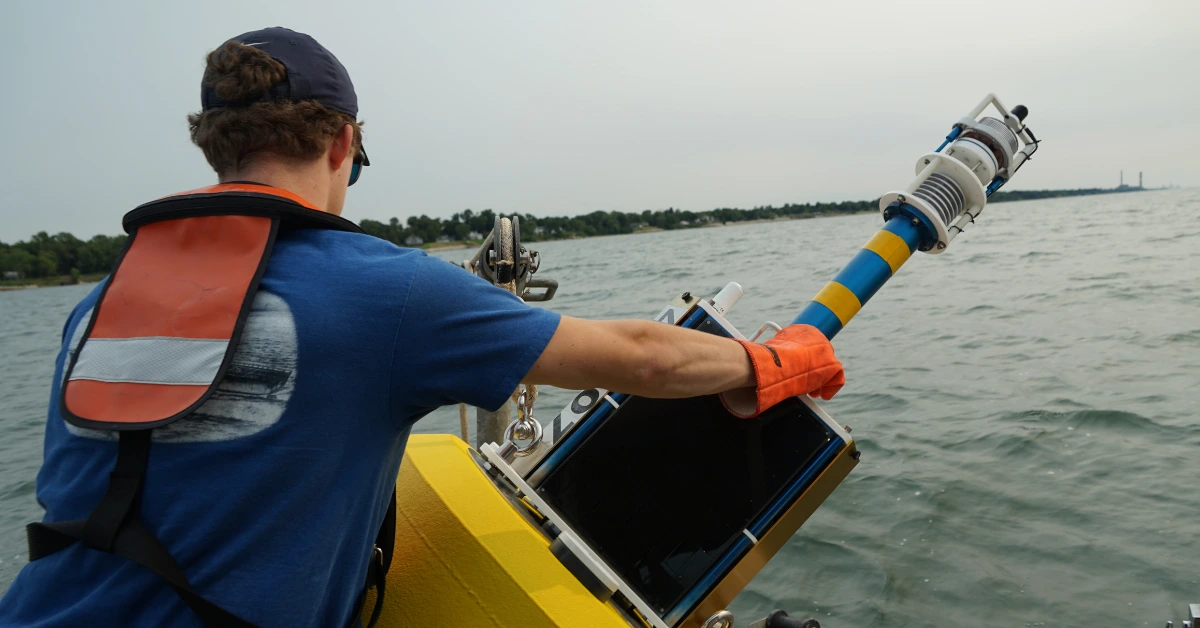Listen to this article
Today, there are thousands of low-cost environmental sensor monitoring systems available; understanding how they can be used for your program and choosing the most compatible system can be a bit daunting.
That’s why we sat down with Jeff Pu, Water Innovation Postdoc Fellow working with CWA, LimnoTech, and NOAA CIGLR, to outline some of the most important affordable environmental sensing trends to be aware of to help you make an informed decision.
Tell us about affordable environmental sensor monitoring systems.
Jeff: Environmental sensor monitoring systems are interconnected networks comprised of various sensors, telecommunication, and databases. Traditionally, the price of these sophisticated systems have provided challenges and risks around scalability, repair costs, and implementation accessibility. Recent developments have made these systems increasingly affordable without compromising their integrity.
Tell us about your work with environmental sensor monitoring systems in the Lake Erie region. What are some of your key learnings around system optimization?
Jeff: I completed a series of deployments of affordable environmental sensor monitoring systems around the Lake Erie region last year. These deployments took place across various locations and environments, including two ponds near Ann Arbor, a river near Cleveland, a lake shoreline near Toledo, and a wetland near Detroit.
It is vital to conduct comprehensive site condition assessments before deployments, and post-deployment maintenance plans are equally as important to ensure system longevity.
What are some of the most important capabilities and broader implications of affordable environmental monitoring systems?
Jeff: Affordable environmental sensor monitoring systems are capable of communicating over long ranges at a low cost while requiring very little power. Once deployed, these systems can last for years on just one small battery. They can collect data around many different parameters including air temperature, relative humidity, pH, turbidity, and conductivity to name a few.
Through leveraging cutting edge communication networks and enhancing economic efficiency, environmental monitoring is becoming more accessible to citizens who are interested in contributing to science-based decisions that will ultimately improve public health, environmental conservation, and water quality in their communities.
On Jan. 27, 2022, Jeff shared key learnings and best practices for affordable environmental sensor monitoring and deployment, and provided the opportunity to engage in an ongoing dialogue with a community of environmental sensor users.
WATCH THE RECORDING



.svg)










